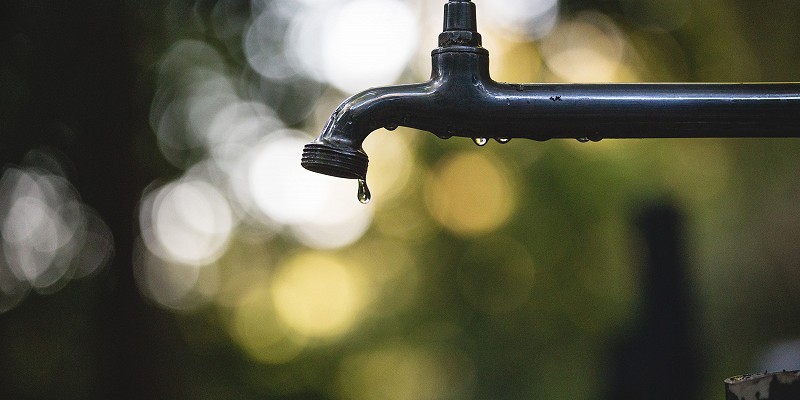
Posted on: August 2019
Dawn Murphy, Action Renewables

An average person in the UK uses 140 litres of water per day. That may seem like a lot, but when you consider our everyday uses such as showering, bathing, toilet flushing, washing dishes, washing cars, watering gardens and of course drinking, it all adds up. But out of those 140 litres you use, how many of those do you drink? Doesn't it seem like a waste to treat water to drinking quality just to flush it away?
Dawn Murphy, Action Renewables
Dawn Murphy is Senior Project Manager at Action Renewables. Action Renewables is a registered charity that aims to create a Northern Ireland which recognises the serious impacts of climate change, and will take measures to prevent and mitigate against those impacts, through using renewable energy, energy efficiency, renewable transport and renewable products. |
 |
|

An average person in the UK uses 140 litres of water per day. That may seem like a lot, but when you consider our everyday uses such as showering, bathing, toilet flushing, washing dishes, washing cars, watering gardens and of course drinking, it all adds up. But out of those 140 litres you use, how many of those do you drink? Doesn't it seem like a waste to treat water to drinking quality just to flush it away?
The water we use for drinking and washing is extracted from rivers and underground water reserves (aquifers). It is then stored in reservoirs and treated in water treatment plants to a high standard and pumped into our homes and businesses. What you may not be aware of is the amount of energy and infrastructure that is required along the way. It's fair to say that most of us are oblivious to the amount of work it takes to keep the water flowing from our taps. Water pumping and water treatment plants take up a lot of energy. In Northern Ireland for example, NI Water spends around £34 million on electricity in delivering services, including pumping water long distances and powering equipment in water treatment plants and wastewater treatment plants.
What is water efficiency?
Water efficiency involves using water wisely and avoiding waste. By doing so you are not only protecting the environment but improving your carbon footprint by indirectly reducing energy use. Water that is not used is treated twice – once before it reaches your home and once when it reaches a wastewater treatment plant, before being returned to the environment again.
Water-efficient products
Most of us know that by having shorter showers and installing low flush toilets, we can reduce our water usage. However, would you know if your washing machine, dishwasher or taps are designed to use less water, to begin with? At the moment, there is no mandatory water labelling scheme but the support for it is unanimous across the water sector. There is no other intervention that will deliver water savings and protection to our local water environment so cost-effectively and quickly as a mandatory water label. Just look at how it has worked for energy labelling – manufacturers don’t want to have G-rated appliance while their competitors have an A-rated one. At present, NI doesn’t have domestic water metering. However, this is common in other parts of the UK and could be implemented here eventually, allowing more water-efficient products to have a direct impact on the consumer.
The UK Government is due to consult on setting a national Per Capita Consumption (PCC) target for water use, and this will call for evidence on water efficiency reduction measures, a big one being water labelling. Unfortunately, Brexit is delaying this consultation, but the water industry is ready to respond to water labelling.
What are the water companies doing?
- Reducing leakage - all water companies in the UK and Ireland have leakage detection programmes and have targets for reducing leakage. Water/utility regulators require annual reporting on their progress.
- Education - school education programmes such as NI Water’s ‘Waterbus’ help teach children about how to conserve water.
- Reducing energy - many water companies also have renewable energy targets (in addition to energy reduction targets) and have installed hydroelectric turbines at their facilities such as reservoirs, solar PV panels on the roofs of their properties or wind turbines on their land.
- Innovation - some water companies have installed small-scale or micro hydropower (MHP) generators. These are usually installed in parts of the water network where there is excess pressure; the pressure must be released to prevent leakage and burst pipes and this energy can be recovered by using a micro hydropower technology.
What can I do?
Any water you conserve is also saving energy - making small behavioural changes can reduce water wastage:
In the kitchen
- Sinks – 10% of your household water usage is accountable to your sink. Try using a basin when washing dishes or vegetables by hand. Not only can this save 18 litres of water per household per day but the leftover water can be used to water plants or rinse the recycling.
- Kettle – only boil what you need, this saves you energy as well as water.
- Washing machine – wait until you have a full load and when replacing your machine, always look for A-rated and check the water usage figure.
- Dishwasher – always run the dishwasher on a full load and use a basin if you only have a few things to wash.
- Drinking water – try keeping a water filter jug in the fridge to prevent the need to run the tap to get cold water.
In the bathroom
- Toilets – this is one of the biggest water users in the home. Consider if you need to flush each time – if its yellow let it mellow! Remember – the water going into your toilet is of the same drinking water quality as that coming from your taps, so don’t waste it. Also adding a toilet cistern bag will reduce the amount of water used each time.
- Showers and baths – take a shower instead of a bath and when showering, try using a shower timer. For example, if your whole family shower one minute quicker, you could save 10,000 litres per year!
- Basins – turn off the tap when brushing your teeth and shaving. A running tap can use six litres of water per minute.
- Fix leaking taps – a dripping tap can waste around 60 litres of water per week.
Outside
- Avoid watering your lawn and use the higher setting on your lawnmower during dry spells. Lawns are resilient and luckily in NI, we don’t have to wait too long for rain!
- Install a water butt as plants prefer rainwater to tap water. If using tap water, use a watering can rather than the hose.
- Wash the car using buckets of water instead of a hose.
For more information on Action Renewables' work in the water industry, take a look at our EU project ‘REDAWN’ - Reducing Energy Dependency in Atlantic area Water Networks. Or go to https://www.redawn.eu/



